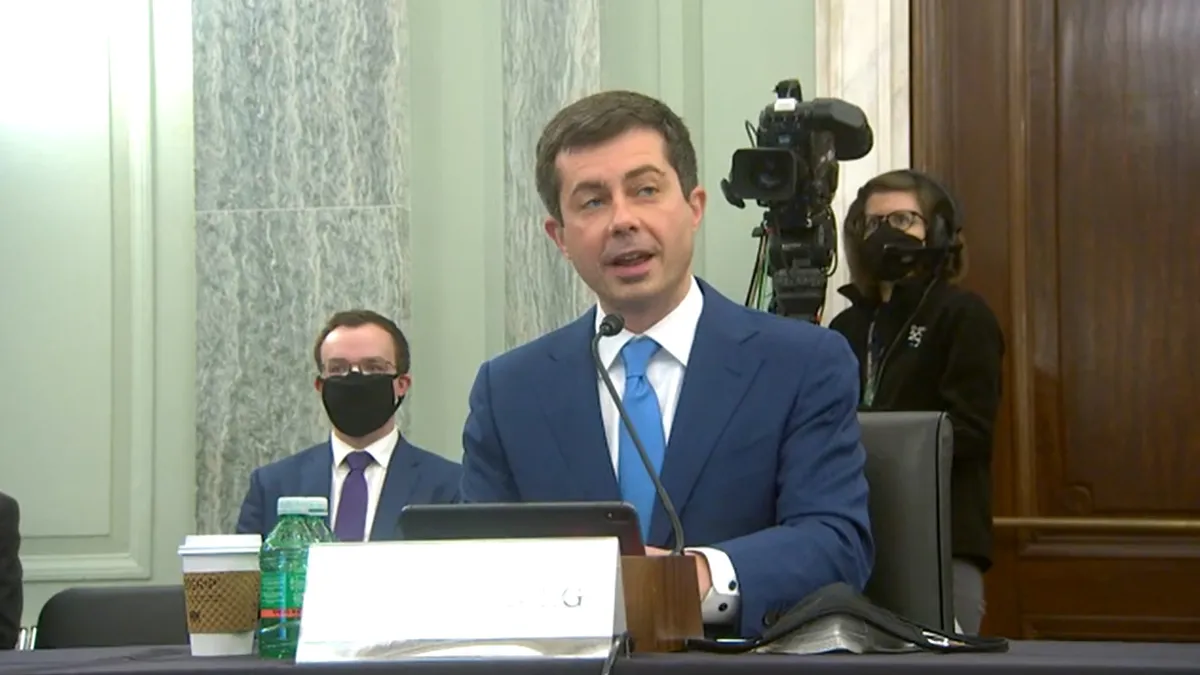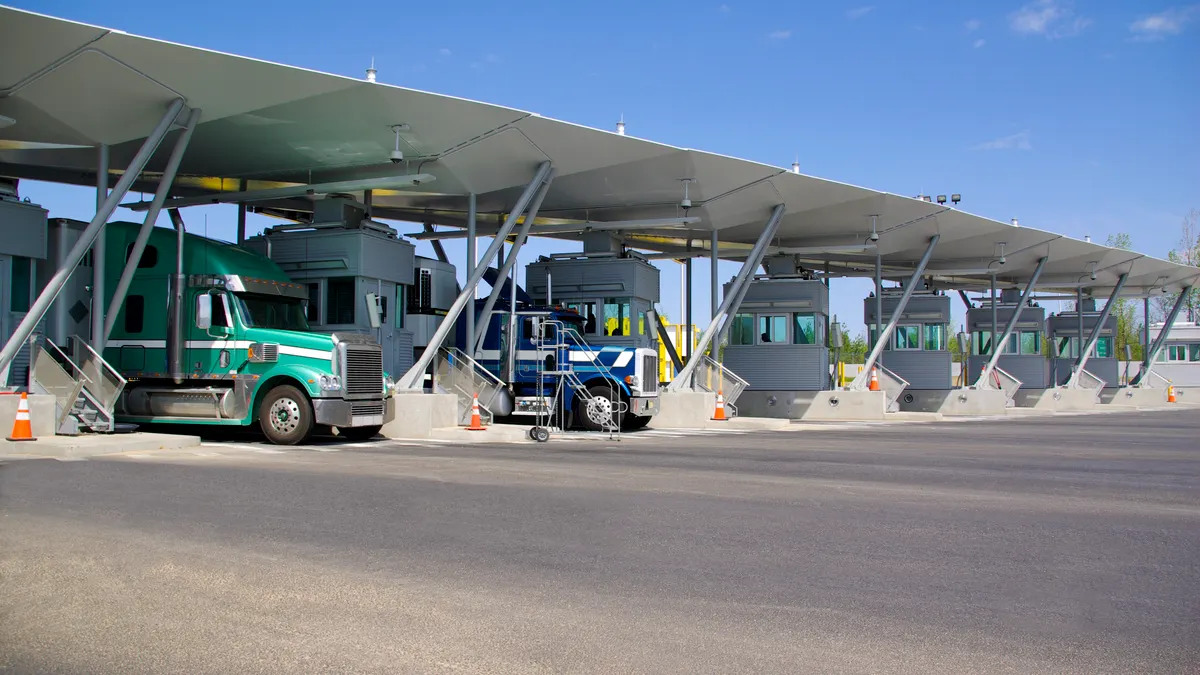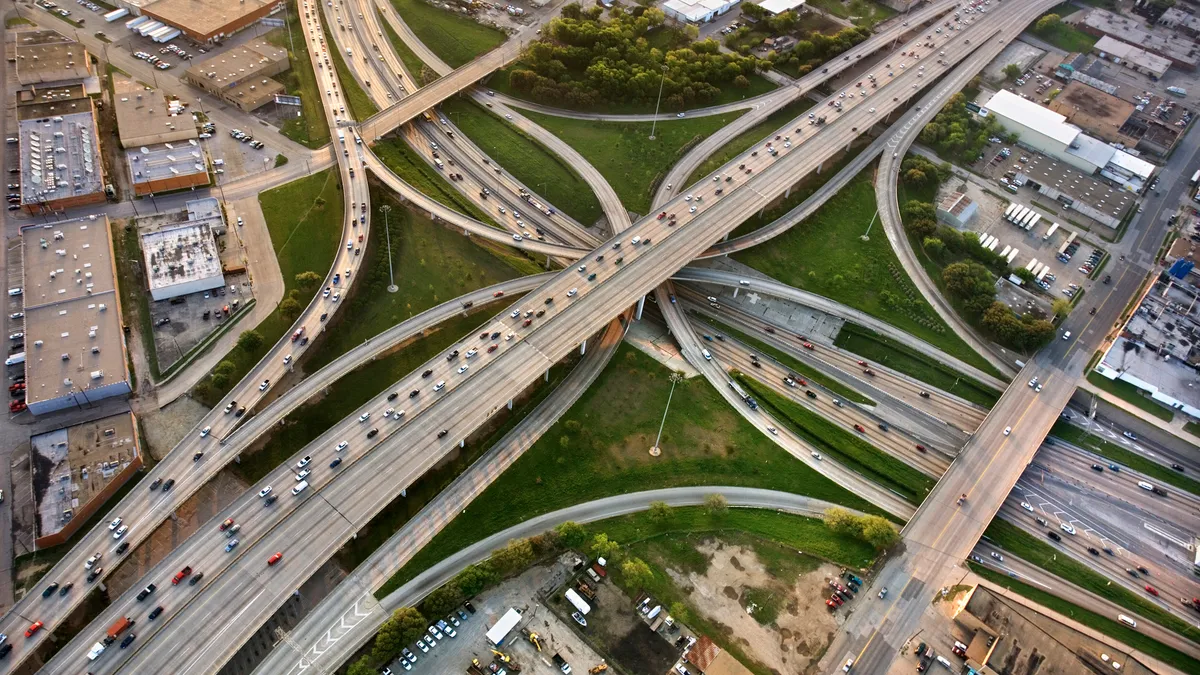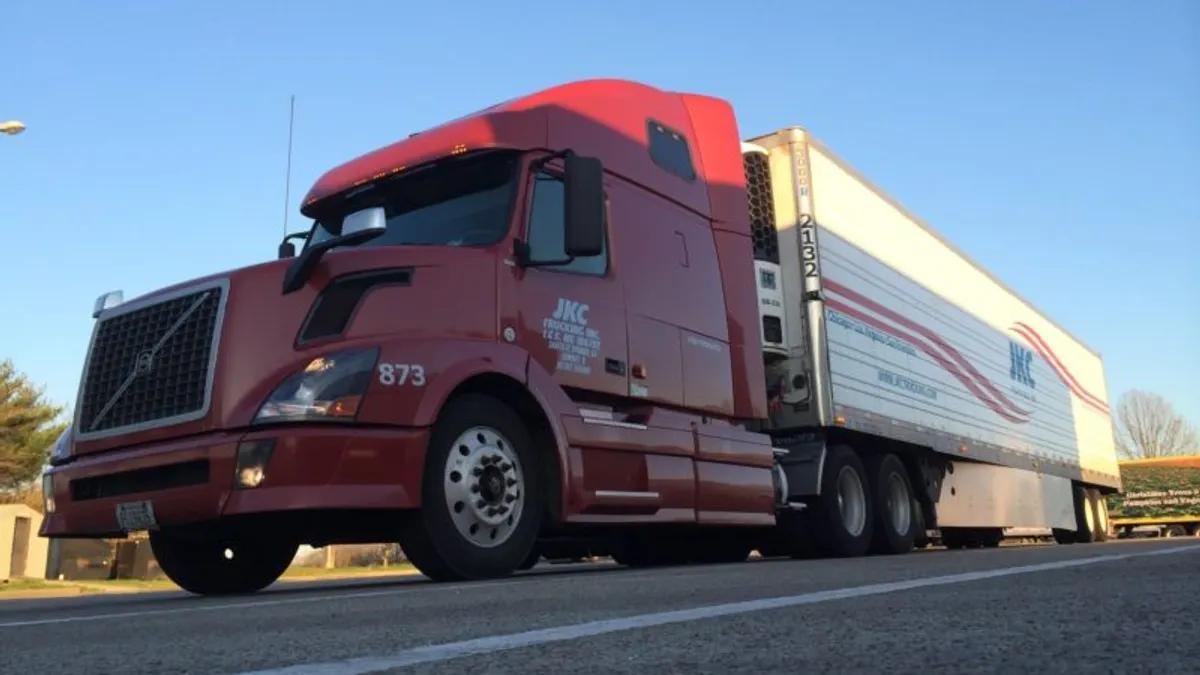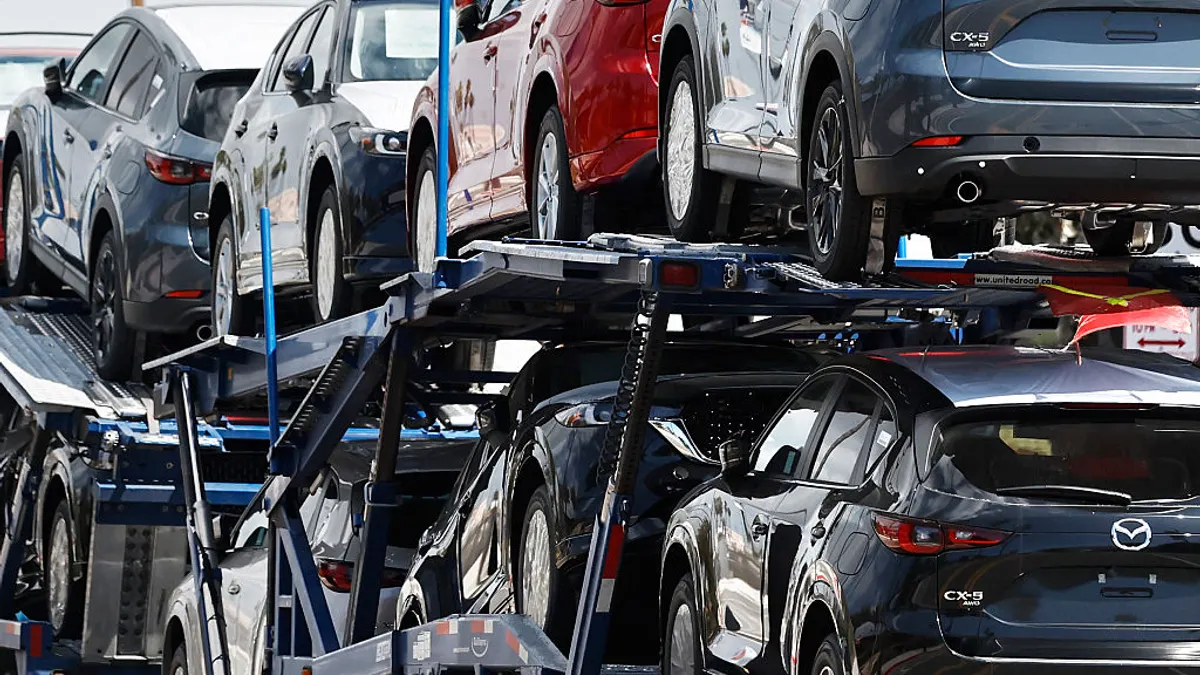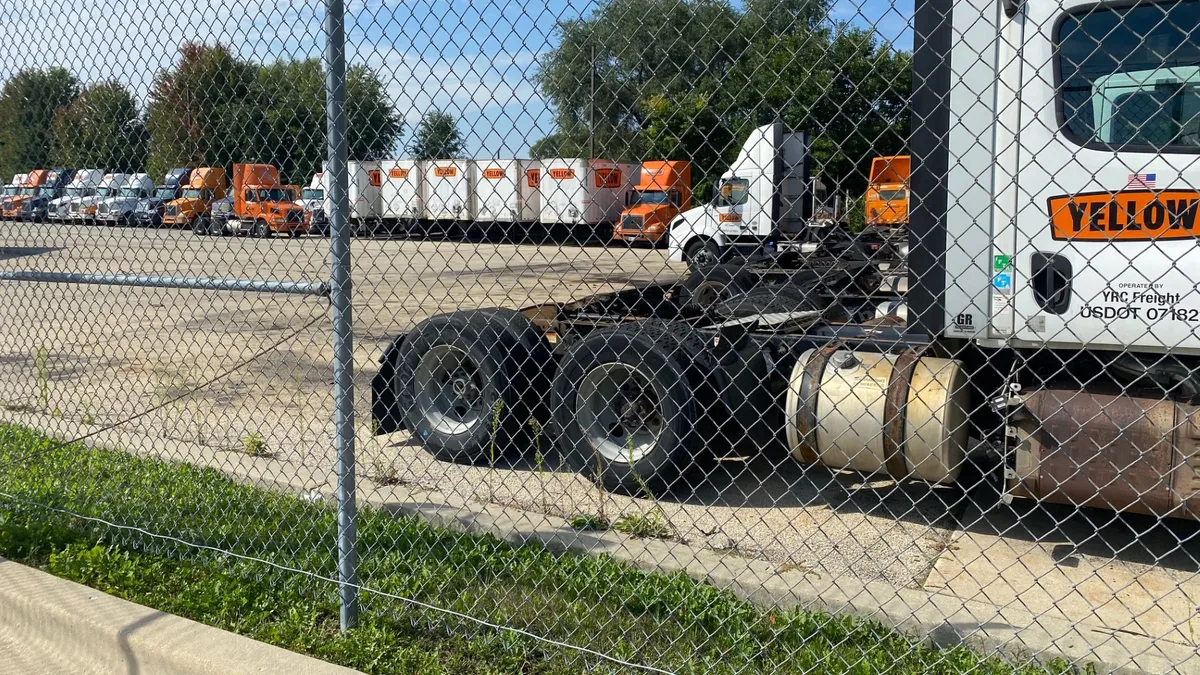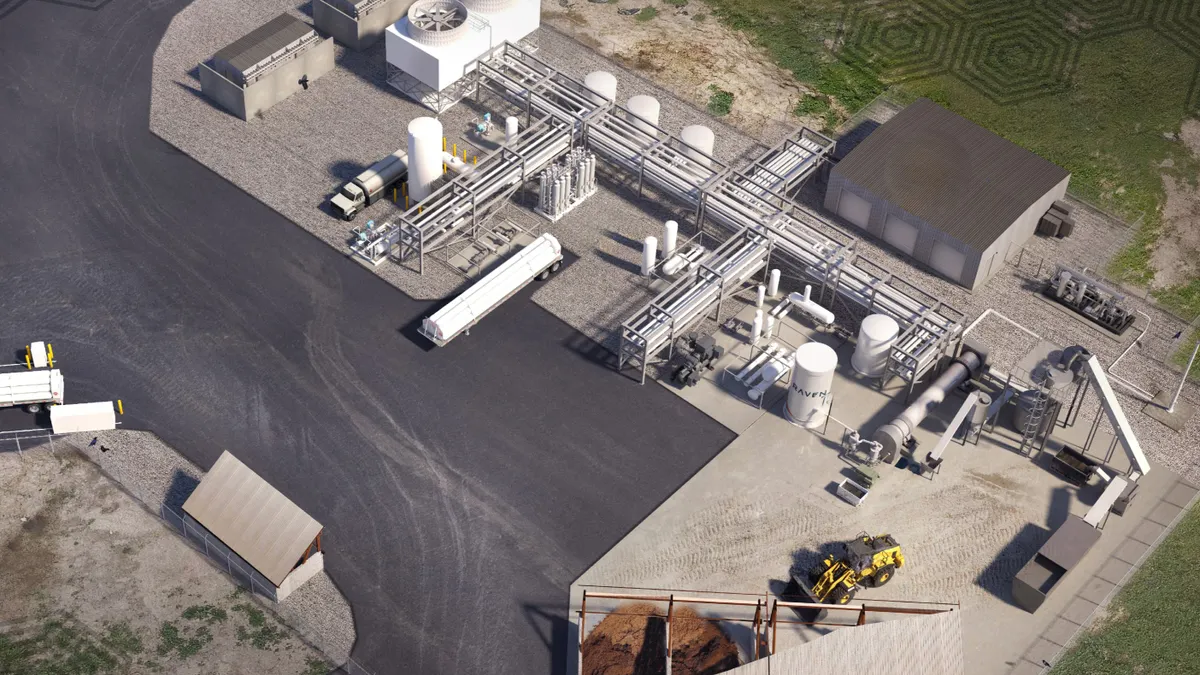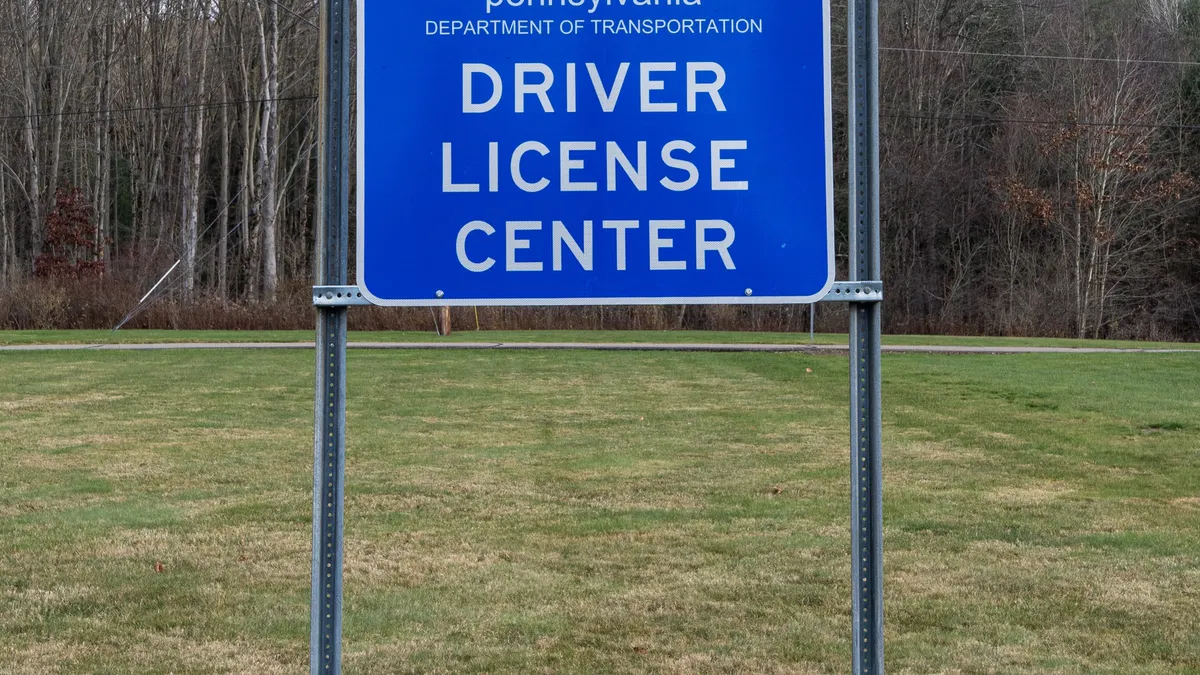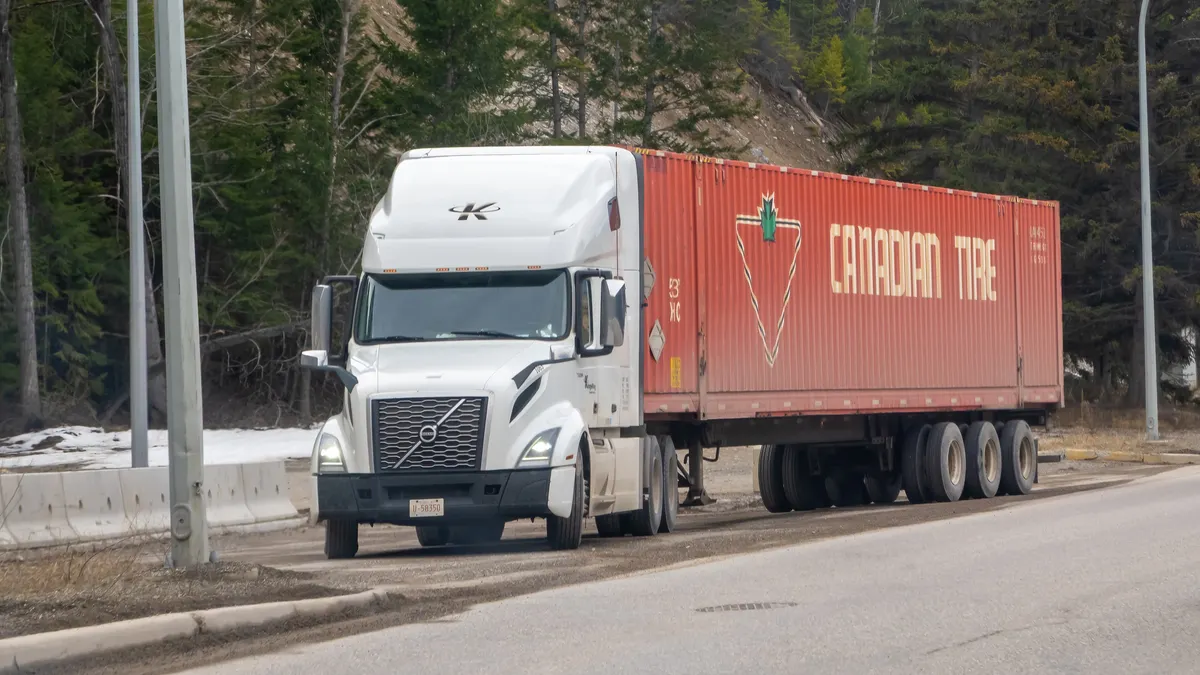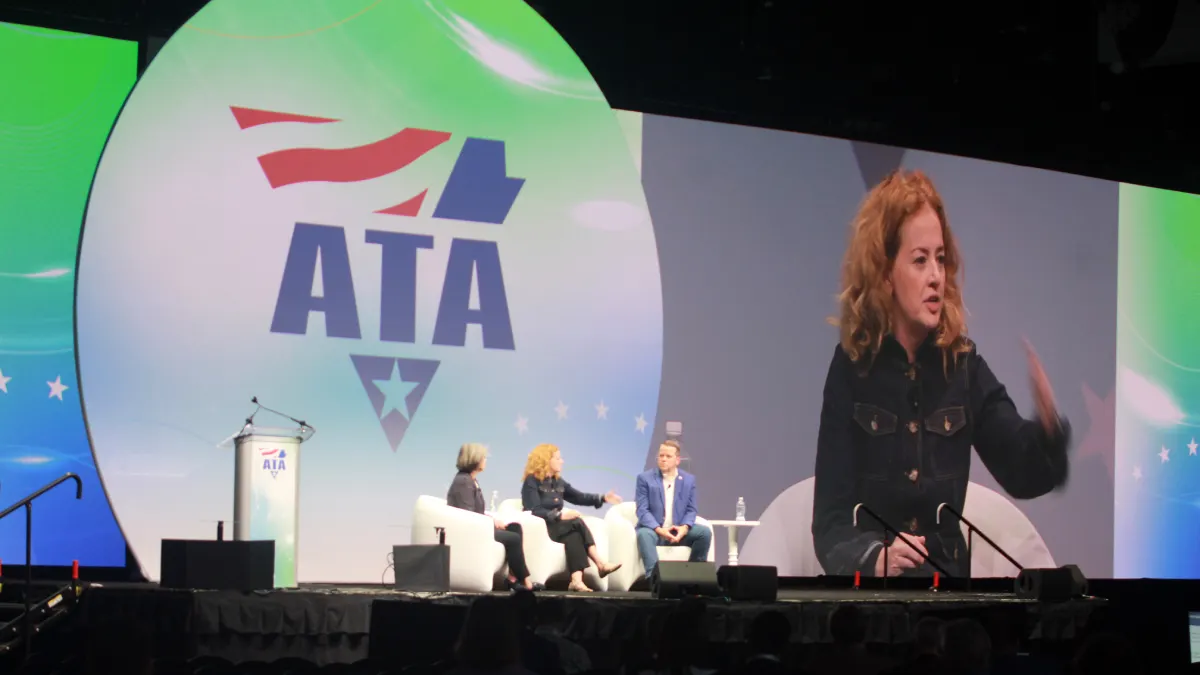The Senate confirmed Pete Buttigieg as the secretary of the Transportation Department, following a vote Tuesday.
During Buttigieg's nomination hearing before the committee on Commerce, Science and Transportation nearly two weeks ago, the former mayor emphasized the "time is now" for the United States to invest in infrastructure.
He also addressed the slew of issues facing transportation, including how autonomous vehicles should be regulated, and how the federal government can support the rollout of electric vehicles.
With President Joe Biden pushing a major infrastructure package in a bid to jump-start economic recovery from the coronavirus pandemic, Buttigieg said such investment is a "generational opportunity to transform and improve America's infrastructure."
A new infrastructure plan
Biden has pledged an ambitious investment in infrastructure to stimulate the economy, and Buttigieg said the time is right for that investment, especially to help the country recover from the pandemic.
"This is our opportunity to literally do the building part in Build Back Better," he said, referring to Biden's campaign slogan for the 2020 election.
And in the new administration's efforts to fight climate change, Buttigieg said rethinking transportation infrastructure could be crucial, especially as that sector is the nation's biggest carbon emitter. "It's going to take a whole-of-government approach, and certainly DOT has a big part of this," he said.
An infrastructure push stalled during the previous administration, and the Fixing America's Surface Transportation Act needs reauthorization. House Democrats unveiled their blueprint for that reauthorization last year, but saw it flounder.
"This is our opportunity to literally do the building part in Build Back Better."

Pete Buttigieg
Transportation Secretary-designate
During the hearing, senators noted the difficulties in funding any infrastructure package, with several pushing Buttigieg on whether he would support raising the federal gas tax to pay for it — something that has not happened since the 1990s. Buttigieg said "all options need to be on the table," including an oft-discussed vehicle miles-traveled tax, of which the trucking industry is generally skeptical, although he was noncommittal beyond that.
"Transportation infrastructure investment, around here, has always been an area for bipartisan cooperation ... The other thing that enjoys bipartisan popularity around here is not paying for it," Sen. John Thune, a Republican from South Dakota, said. "We continue to just put it on the debt and hand the bill to our kids and grandkids."
Emerging technologies
Buttigieg also addressed the prospect of emerging transportation technologies, such as autonomous vehicles and electric vehicles, as they enter various stages of development. Such technologies were a highlight under former DOT Secretary Elaine Chao's leadership as well, resulting in her creation of the Non-Traditional and Emerging Transportation Technology Council.
Congress has tried, and failed, to regulate AVs on a national scale amid worries about safety provisions and other stumbling blocks. In the meantime, the DOT has looked to provide some guidelines through its AV 4.0 framework, while its National Highway Traffic Safety Administration has launched a voluntary, public-facing tool for AV data transparency.
But this reliance on a patchwork of regulations and guidance has some elected officials concerned. In the hearing, Sen. Deb Fischer, a Republican from Nebraska, asked about the importance of making sure regulations "keep up with the advancement we see in the private sector." In response, Buttigieg said the DOT and lawmakers must do more.
"Automated vehicle technology is coming; it's advancing very quickly," he said. "It is something that holds the potential to be transformative, and I think, in many ways, policy has not kept up."
The Biden administration has also pledged to accelerate electrification, pushing for 500,000 EV charging stations nationwide in a bid to reduce consumers’ range anxiety. So far, that push has been led largely at the local level and by automakers, as they improve battery technology. But lawmakers said the federal government can play a leading role on pushing more EV adoption.
"It's not a technology issue, it's just a matter of political will to get that job done," said Sen. Ed Markey, a Democrat from Massachusetts.
Fewer fatalities
In a questionnaire provided to the committee ahead of his confirmation hearing, Buttigieg emphasized his efforts as mayor of South Bend, Indiana, to redesign that city's streets for safer and more efficient transportation. That Complete Streets approach was honored by then-Transportation Secretary Anthony Foxx in 2016; Buttigieg pledged to emphasize similar policies at the DOT.
Complete Streets policies have been traditionally led at the local level, although in 2019 the bicameral Complete Streets Act was introduced in Congress in a bid to take the program nationwide. That bill went nowhere, but traffic fatalities and pedestrian deaths increasing as people drive less during the pandemic has renewed focus on road safety.
A coalition of associations and other groups even wrote to Biden and Buttigieg this week calling for a national strategy to have zero roadway fatalities by 2050.
Buttigieg's call for a national commitment to zero roadway fatalities won him strong support from the Governors Highway Safety Association and the National Association of City Transportation Officials, among others, before his hearing. He said the country must "move towards a vision where every trip is a safe one," and said streets must accommodate all modes safely.
"I think it's very important that we recognize the importance of roadways where pedestrians, bicycles, vehicles, any other mode, can coexist peacefully," Buttigieg said. "That Complete Streets vision will continue to enjoy support from me if confirmed."
Building Biden's DOT
Biden has begun further filling out positions at the DOT. Another city-level transportation official could be in line for an elevation: New York City Department of Transportation Commissioner Polly Trottenberg has been nominated as Deputy Secretary of Transportation.
That nomination, which will require Senate confirmation, received strong support from various organizations. In a joint statement, National Association of City Transportation Officials Executive Director Corinne Kisner and Chair Janette Sadik-Khan said Trottenberg is an "inspired choice" who "knows first-hand the enormous challenges that cities face."
Other positions include:
- Meera Joshi, former commissioner of the New York City Taxi and Limousine Commission, as deputy administrator at the FMCSA.
- Steve Cliff of the California Air Resources Board as deputy administrator of the National Highway Traffic Safety Administration.
- Stephanie Pollack of the Massachusetts DOT as deputy administrator of the Federal Highway Administration.
This story was updated following Buttigieg's confirmation.

